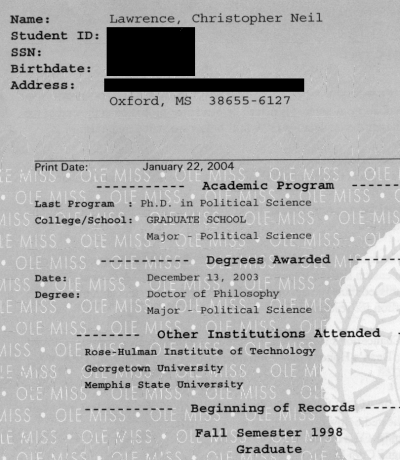Kevin Drum reckons the soft underbelly of the Bush presidency is Dick Cheney:
I’m going to stick with my suggestion that the Democrats could gain some traction by making Cheney a bigger issue in the campaign than vice presidents usually are. It would require a subtle touch, of course, but let’s face it: nobody likes an evil genius operating out of a hole. There ought to be something there we can take advantage of.
On the other hand, Unlearned Hand isn’t buying quite yet:
First of all, I think most Americans just won’t believe any claims that the Vice-President is exerting so much control. It goes against all conventional wisdom on vice-presidencies, and that’s a lot of inertia to overcome.
I’m not so sure about that; vice presidents have become more salient figures over the past 10–15 years than they used to be (see, e.g., Al Gore), although I’ll agree that the size of Cheney’s role is unprecedented. I’m rather inclined to think that vice presidents ought to have larger roles anyway, within the limitation that their primary job is to not die before the president does.
Cheney’s large role, in a lot of ways, is probably due to the relative inexperience of Bush in national politics. Interestingly, though, the “Ex-Governor – D.C. Insider” pattern has applied to every presidential ticket since Ford’s.
Second, it can easily be spun (perhaps correctly) into proof that Democrats know they can’t win by going after the President himself. Karl Rove could have a field day running ads that say “They are picking on the President’s staff because they don’t want to go head-to-head with George W. Bush.”
Well, it’s one thing to go after Andy Card and another to go after Cheney—the latter’s name, at least, is on the ballot. And I think there are legitimate issues that can be aired about Cheney’s role vis à vis Halliburton. I don’t know that I buy them necessarily (Cheney is hardly the first beltway insider to “descend from heaven” into a cushy job in the private sector, to borrow the Japanese coinage), but it’s a legitimate topic for discussion.
Third, I think Cheney’s presence is actually reassuring to a lot of people. To the extent that people do buy into the “Bush is dumb” rhetoric, many of them think having Cheney around makes for a perfect complement: Bush gives them the leadership and machismo that reassures a frightened nation, Cheney provides the organization and runs a lot of the policy analysis.
Perhaps that’s the case. On the other hand, I think the public perception of Cheney is that he’s on the verge of death—hardly a reassuring image. On balance, I tend to agree with Kevin and think Cheney’s a liability, at least on the image side.
Personally, though, I think Democrats could make much more hay with the Creepy Combo of John Ashcroft and Tom Ridge—at least with libertarian-minded voters like me who are deeply skeptical about Homeland Security’s smoke-and-mirrors operation and Ashcroft’s ties to the fundies and the CCC types. With a reasonably credible candidate at the front of the ticket (at this point, it’d have to be Edwards or possibly Kerry), that sort of message might sway my vote.
This is today’s OTB Traffic Jam entry.
![Welcome to Signifying Nothing [Signifying Nothing]](/local/memlogo-1.png)

